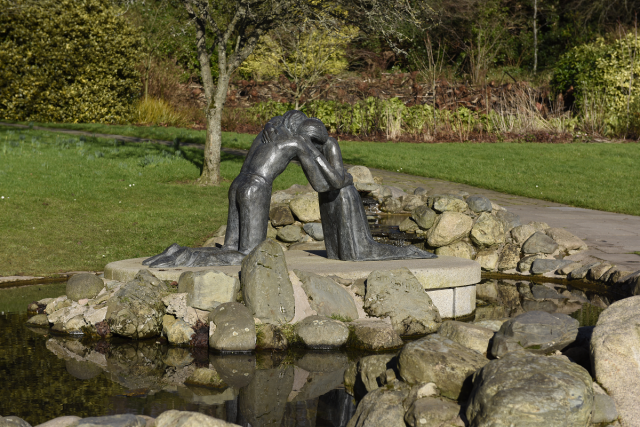One area that has created considerable political division in Northern Ireland is how to deal with a contested past. Broadly, ‘dealing with the past’ tends to refer to issues relating to people affected by the conflict, how the past is commemorated or remembered and truth recovery and justice. How far is Northern Ireland from an agreed approach to deal with the events of the conflict?

The Current Framework
Issues relating to the past are managed through the following processes:
- Parades: The Parades Commission is responsible for adjudicating on potentially contentious parades. Draft legislation was proposed in 2010 to replace this system, but this was not progressed.
- Flags: There are separate pieces of legislation that prohibit the placing of flags on Roads Service property (such as lampposts), regulate the flying of flags on public buildings and prohibit the display of paramilitary emblems. The Joint Protocol in Relation to the Display of Flags in Public Areas, agreed in 2005, prioritises negotiation and local agreement regarding the taking down of contentious flags.
- Victims and Survivors: A Commission for Victims and Survivors was established in 2006 and the Victims and Survivors Service took over the task of distributing funding to individuals and groups from the Northern Ireland Memorial Fund and the Community Relations Council in 2009. A Private Member’s Bill in 2010 sought to narrow the definition of ‘victims and survivor’ (defined in the Victims and Survivors (Northern Ireland) Order 2006), but this was not agreed at Second Stage.
- Transitional Justice: There have been various official methods for investigating the past:
- Government-appointed inquiries and investigations
- Police Ombudsman
- Legacy Investigation Branch of the Police Service for Northern Ireland (PSNI), which replaced the Historical Enquiries Team (HET) in 2014
- Inquests
- Independent Commission for the Location of Victims’ Remains
In addition, case law (from individual litigation to cases brought to the European Court of Human Rights) can have a role in generating information on events of the past.
Processes for Dealing with the Past
The Bloomfield Commission, which investigated issues for people affected by the conflict, concluded in 1998 with the report We Will Remember Them. Among the recommendations were increased support to victims of the conflict through funds and services, a Victims Commission or equivalent and consideration of a truth and reconciliation commission. While recommendations for support to victims and a Commission for Victims and Survivors have been acted upon, there has been no truth and reconciliation commission.
In 2007, the Secretary of State appointed an independent group to look at ways forward for dealing with the past in Northern Ireland, co-chaired by Robin Eames and Denis Bradley. The Report of the Consultative Group on the Past was published in 2009. Among the recommendations were the establishment of an independent Legacy Commission, support to victims of the conflict, recognition of those who have suffered (including a one-off payment) and a Reconciliation Forum. These recommendations were not taken forward.
A commitment was made in the Together: Building a United Community strategy to establish an All Party Group to consider and make recommendations on matters including parades and protests; flags; symbols, emblems and related matters; and the past. Cross-party talks were chaired by Senator Richard Haass and Dr Meghan O’Sullivan, leading to a proposed agreement in December 2013, which included alternative measures to take over from the Parades Commission and HET and bodies to look at information retrieval and cultural issues such as flags. This was not endorsed by all parties and has not been implemented.
The Stormont House Agreement in 2014 included a range of measures associated with dealing with the past, including:
- a Commission on Flags, Identity, Culture and Tradition;
- responsibility for parades to be given to the Northern Ireland Assembly;
- an Oral History Archive;
- an independent Historical Inquiries Unit to take over from the HET and take on legacy cases from the Police Ombudsman; and
- an Independent Commission on Information Retrieval.
The 2015 Fresh Start Agreement included an implementation plan for the measures concluded in the Stormont House Agreement.
There remain significant issues to be addressed regarding the past, such as the balance between disclosure and national security in legacy cases. Issues relating to flags and parades remain unresolved.